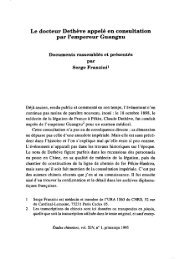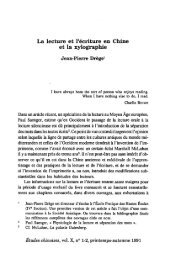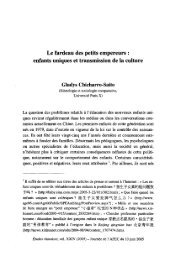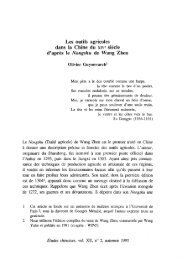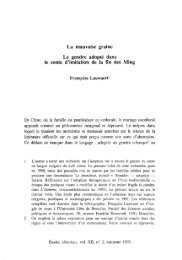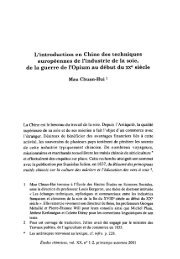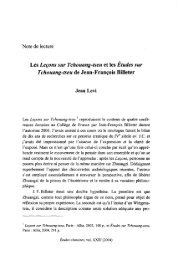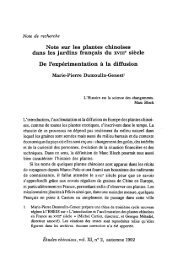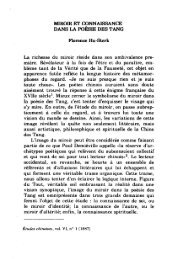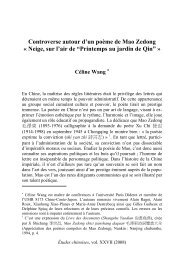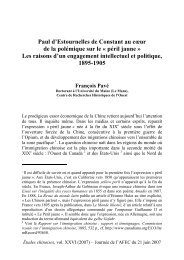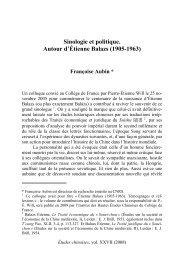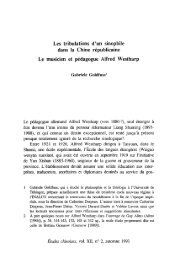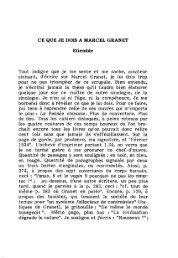Create successful ePaper yourself
Turn your PDF publications into a flip-book with our unique Google optimized e-Paper software.
Comptes rendus<br />
of Wang's philosophy, it is perhaps préférable to indicate some aspects of<br />
Wang's mental universe that hâve hitherto either escaped the attention of<br />
other scholars or been insufficiently studied, but which, as Gernet demonstrates,<br />
are of fundamental importance.<br />
In the fïrst place, one should certainly bear in mind the significance<br />
of Wang's refusai to consider language as more than an artificial and<br />
inadéquate tool for dealing with the complexities of the real world. His<br />
remarks on Confucius' famous statement "Je voudrais ne plus parler...<br />
Est-ce que le Ciel parle ?" are quoted in the section where Gernet<br />
élaborâtes on the Chinese préférence for an interprétation of the world<br />
through graphie signs and their inter-relationships in time and space, as in<br />
the symbols of the Zhouyi. Of course, Wang was by no means alone in this.<br />
Confucius apart, one finds variations on the same thème across the whole<br />
spectrum of Chinese philosophy. Wang's debt to his Song predecessor,<br />
Zhang Zai, in his studies of the Zhouyi, is clear. And another Song-dynasty<br />
thinker, Zhou Dunyi (1017-1073), exerted considérable influence through<br />
his diagram of the Taiji ;fc|H or Suprême Ultimate, originally a circle<br />
representing the universe in its yin and yang aspects, but which Wang<br />
interpreted as a sphère full of yin and yang energy. Although the place of<br />
the Zhouyi and Zhang Zai in Wang's thought has long been recognized,<br />
Gernet's analysis intégrâtes this in the larger context of a Chinese tradition<br />
in a way that is exceptionally illuminating.<br />
Two terms that recur in Gernet's study are 'Nature' and 'artifice'.<br />
This is not surprising. Wang, like most Chinese thinkers, was concerned to<br />
understand Nature (in the broadest sensé of the term, including the human<br />
world), to fïnd ways of cooperating with its complex and mysterious<br />
movements. (No notion hère of mastering Nature or conquering it, in the<br />
western sensé). Language, as we hâve seen, came into the category of<br />
what was artificial. Nevertheless, Wang insists on man's position as an<br />
intégral élément in the structure of the universe. This together with his<br />
concept of human nature as something which grew and evolved through<br />
human life, and his théories concerning universal change and human history<br />
led him to adopt a dynamic and realistic attitude towards the problems<br />
of his day. In this respect, as Gernet emphasizes, Wang, and Chinese<br />
480



